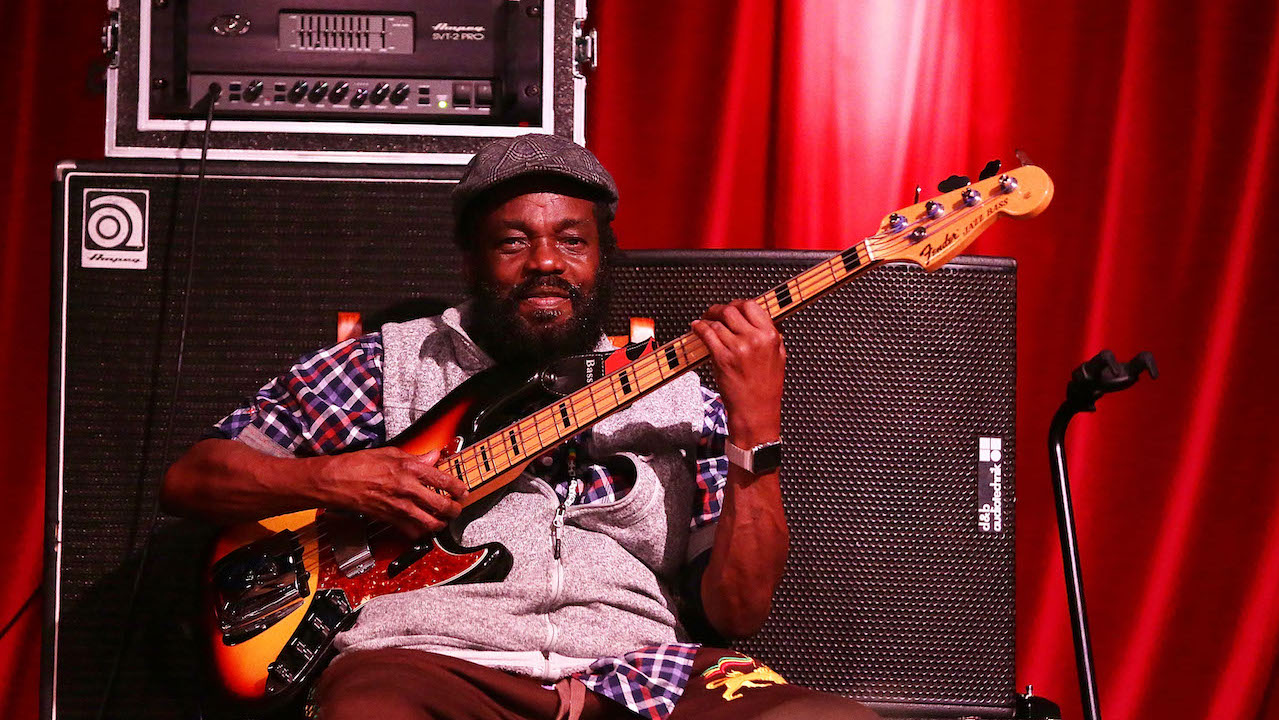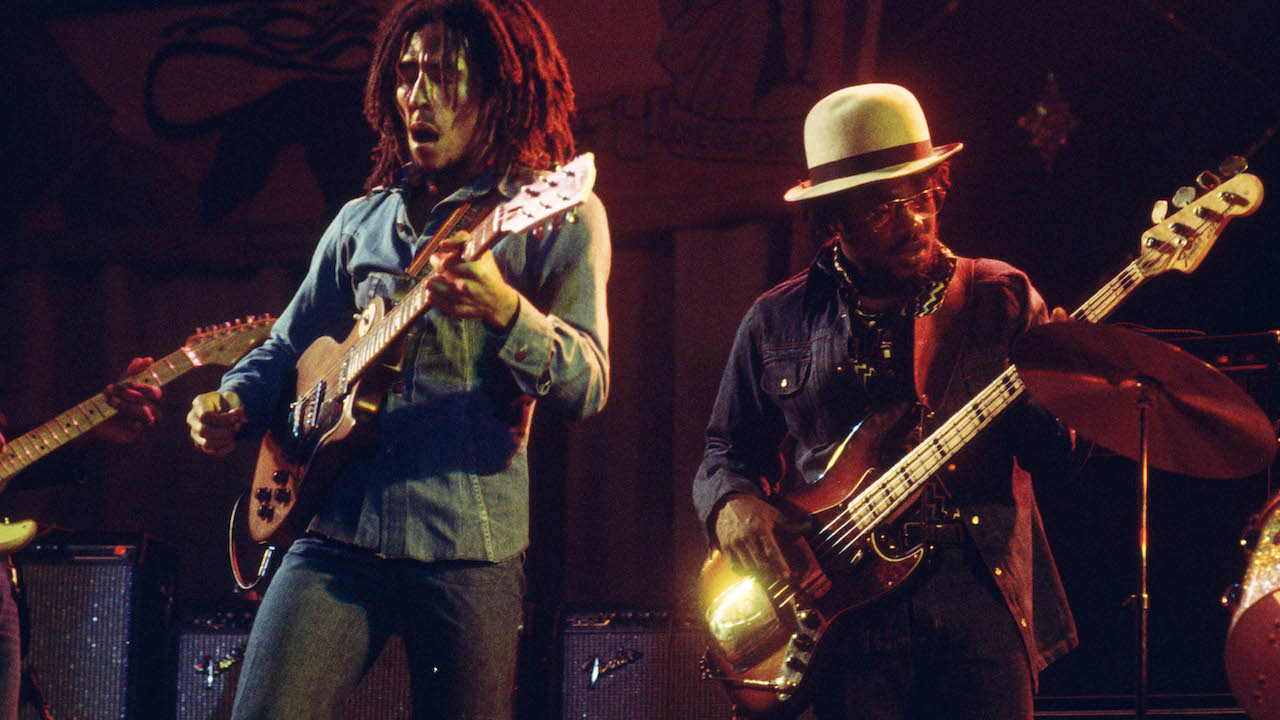“His sound was reggae. He was an utterly beautiful force”: Tributes paid to Aston ‘Family Man’ Barrett, who has died aged 77
Ziggy Marley, Flea, Justin Meldal-Johnsen, and many more pay tribute to Aston ‘Family Man’ Barrett, bassist and bandleader of Bob Marley and the Wailers

All the latest guitar news, interviews, lessons, reviews, deals and more, direct to your inbox!
You are now subscribed
Your newsletter sign-up was successful
Tributes have been flooding in for Aston “Family Man” Barrett, who died at a Florida hospital on February 3rd, aged 77. Sharing the news on Instagram, his son Aston Barrett Jr. wrote that the world had “lost not just an iconic musician and the backbone of The Wailers, but a remarkable human being whose legacy is as immense as his talent.”
Known as “Family Man”, due to his voluminous offspring count, Barrett was Jamaica’s leading exponent of bass guitar, and a true master of his instrument in the reggae genre. After joining Bob Marley and The Wailers in 1970, he undoubtedly became the most famous reggae bassist in the world, thanks to his heavy, loping basslines beneath all of Marley’s biggest hits.
Songs like Kaya, Could You Be Loved, One Drop and Three Little Birds all owe much of their success to Barrett’s melodic basslines. Yet “Family Man” accomplished much more than just being Bob Marley’s preferred bassist. Co-writer and arranger of much the group’s work, he played a crucial role in the international advancement of the Wailers. A talented organist and innovative record producer in his own right, his contribution to reggae reached far beyond his sterling bass work with Jamaica’s most famous son.

Like many Jamaican musicians, Barrett had humble beginnings. Born in 1946, he was raised with his older sister and younger brother in a central ghetto area of downtown Kingston. Together with his drumming brother Carly, he emerged on the scene as reggae burst forth in the late 1960s in a band called The Hippy Boys – a band that became The Wailers backing group under the guidance of visionary producer Lee “Scratch” Perry.
“Family Man” and Carly were an unbeatable rhythm section, and it was his musical arrangements that gave shape to the majority of Bob Marley’s best known work for Island Records.
“His sound – deep, pulling and pushing the beat with syncopation, yet always spot on the one downbeat – was reggae, and he pioneered it,” said Talking Heads and Tom Tom Club bassist Tina Weymouth, who met Barrett backstage at a Wailers show in the early '80s. “He was an utterly beautiful force and an amazing soldier who helped bring reggae to the fore. His legacy is a noble one.”
Pete Griffin called it “a sad day for the universal groove…I regularly say that “Family Man” Barrett is the best bassist ever simply because his basslines are completely essential to every song.”
All the latest guitar news, interviews, lessons, reviews, deals and more, direct to your inbox!
“Rest easy,” wrote Flea on Instagram. “Thank you for the immaculate craftsmanship, thank you for the lessons, your humble student, Flea.”
“My teacher is gone,” added Bob Marley's eldest son, Ziggy. “His feel and style has inspired me and so many others. We will continue to study his genius for generations. His spiritual energy and teachings endure.”
“My personal G.O.A.T.” said Yolanda Charles. “Beautiful riffs that shaped the Wailers' sound. Gone too soon, but his legacy makes it a story that never ends.”
“Family Man” was ranked at number 35 in our list of The 100 Best Bass Players of all Time. “He should be Number One,” the late Robbie Shakespeare told BP back in 2020. “Family Man is the one who kicked my butt; he’s the one who told me to get up and do this.”
Justin Meldal-Johnsen wrote, “He was one of the founding architects of an entire musical world. It’s a profound loss for all as another true great leaves us. RIP Aston “Family Man” Barrett. The greatest. A mighty, iconic, pioneering presence.”
UB40’s Ali Campbell added, “His legacy will forever resonate through the timeless music he contributed to. May he rest in eternal peace, and may his family find solace in the enduring impact he made.”

Nick Wells was the Editor of Bass Guitar magazine from 2009 to 2011, before making strides into the world of Artist Relations with Sheldon Dingwall and Dingwall Guitars. He's also the producer of bass-centric documentaries, Walking the Changes and Beneath the Bassline, as well as Production Manager and Artist Liaison for ScottsBassLessons. In his free time, you'll find him jumping around his bedroom to Kool & The Gang while hammering the life out of his P-Bass.
